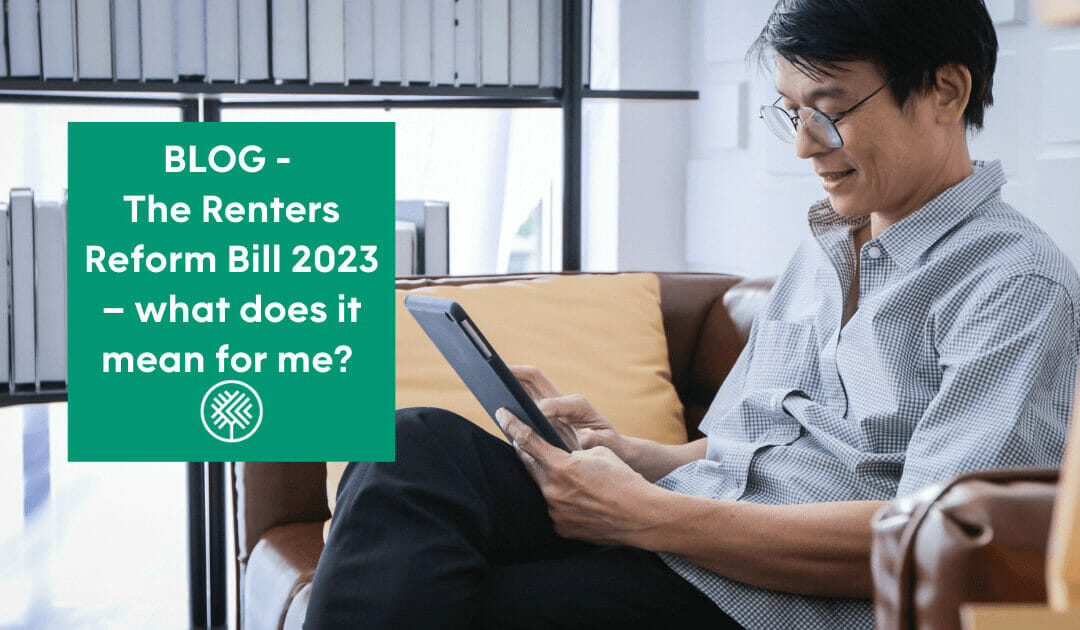The Renters Reform Bill, brought to Parliament this May, brings sweeping changes to the rental sector for England’s 2.3 million landlords and 11 million private tenants. It was first discussed in 2019, before being expanded on in 2022’s ‘fairer private rented sector’ white paper.
Why is it needed?
The Bill aims to give private renters ‘a better deal’ and, crucially, does away with Section 21 ‘no fault’ evictions. It means that, as a landlord, you can only ask your tenants to move out in reasonable, fault-based circumstances. Nearly all the suggested reforms of the original white paper are in the Bill, although some will only come into force at a later stage.
At the same time, the Bill aims to support the majority of good landlords with greater possession grounds where tenants behave badly or circumstances change.
- Section 21 evictions
The Bill abolishes Section 21 evictions to give renters security and landlords confidence they can reclaim their property as necessary.
Fixed-term tenancies will change to periodic ones, i.e. agreements with no set end date.
New tenancies that would have otherwise been Assured or Assured Shorthold arrangements will come under the new system immediately.
Renters will need to give two months’ notice of moving out, while landlords will only be able to evict someone in reasonable circumstances (these will be set out in law).
Replacing section 21, section 8 becomes stronger, meaning landlords can terminate a tenancy early if they have good legal grounds for doing so. That process will be similar to the current section 21, with landlords having to serve notice within an established timeframe. If the tenant remains in the property, landlords have the right to go through the courts.
- Grounds for possession
These fall into two categories: mandatory and discretionary, and aim to be ‘comprehensive, fair and efficient’.
If you can prove mandatory grounds for possession, the judge must award it. They will consider discretionary grounds.
Mandatory grounds are changing to accommodate landlords who want to sell or move into the rental property, and cover significant repeat rent arrears. If you gave fallen more than two months behind with rent (or more) three times within the past three years, there are mandatory grounds for eviction.
Tenants will now have up to four weeks to move out following such an eviction.
- A new ombudsman for the sector
The Bill brings in a single, government-approved Private Rented Sector (PRS) Ombudsman to resolve issues ‘fairly and impartially’ outside the courts. This will have the power to make landlords apologise, supply information, take remedial action and pay compensation of up to £25,000. The Bill proposes mandatory landlord membership of the Ombudsman – although full details of the scheme are still being finalised.
- The right to have pets
The Bill makes it easier for renters to have pets in rental properties. Any tenant will be able to request this, and a landlord won’t be able to turn such requests down unreasonably. However, they will be able to ask renters to have pet insurance, covering potential damage to property.
- A new property portal for the sector
A new digital property portal from the government will aim to provide landlords, tenants and local authorities with extensive information under a single virtual roof.
- Rent in advance and rent rises
The Bill means rent can only go up once annually. Rises will happen through a single mechanism, replacing the current section 13 process. Landlords must give two months’ notice of rent increases.
Equally, the Bill limits how much rent landlords can ask for ahead of a tenancy. And if someone pays for multiple months of rent in advance, landlords will need to repay any upfront rent if a tenancy ends before the amount of time they have paid for.
- The Decent Homes Standard
Across social housing, the Decent Homes Standard applies. The Bill recommends this now applies to the PRS, but more consultation will be needed first. However, when introduced it’s set to cover aspects from noise insulation to kitchen and bathroom quality, heating and health and safety hazards.
- Blanket benefits bans
The Bill suggests ending ‘blanket bans’ on those receiving benefits or families with children. The government says it plans to support informed decisions based on individual circumstances, working with the insurance industry and striving to improve the available information on welfare support.
When do these changes become law?
At this stage, further readings in parliament are needed before Royal Assent is given. The Bill is set to be implemented in two stages, and there will be six months’ notice minimum of the first implementation date. All existing tenancies will transfer to the new system on the second date, which will be at least a year after the first.
Oakfield says
At Oakfield Estate Agents, we broadly welcome the Renters Reform Bill, which we believe increases fairness and security across the PRS, both for landlords and tenants. We’d also welcome your thoughts, and will happily discuss any aspects of the Bill with you.
We’ve helped landlords and tenants in East Sussex since the mid-1990s, and now have offices across Hastings, Eastbourne and Bexhill. We’re hopeful the Bill should make it easier for us to continue providing our first-class service in the years ahead.
To chat to one of our friendly team get in touch, find our contact details here.

